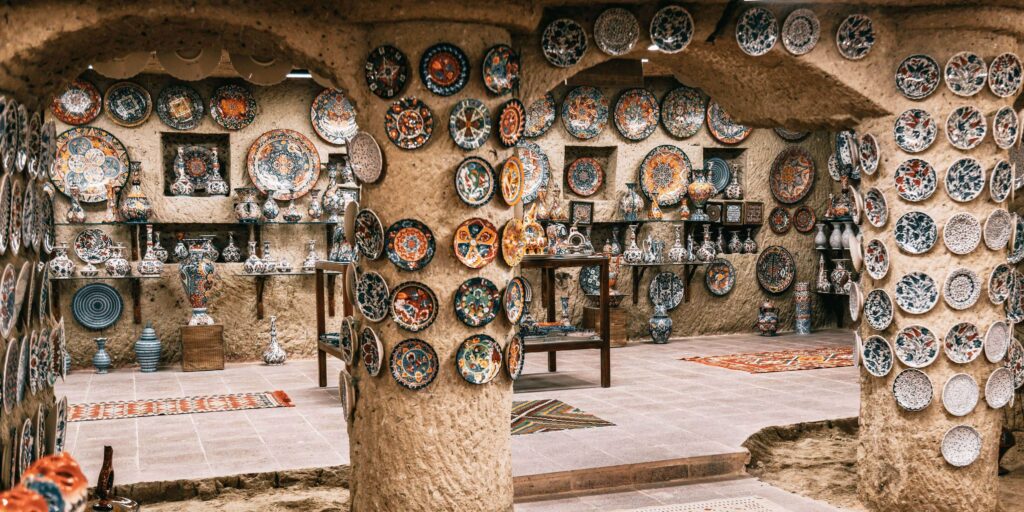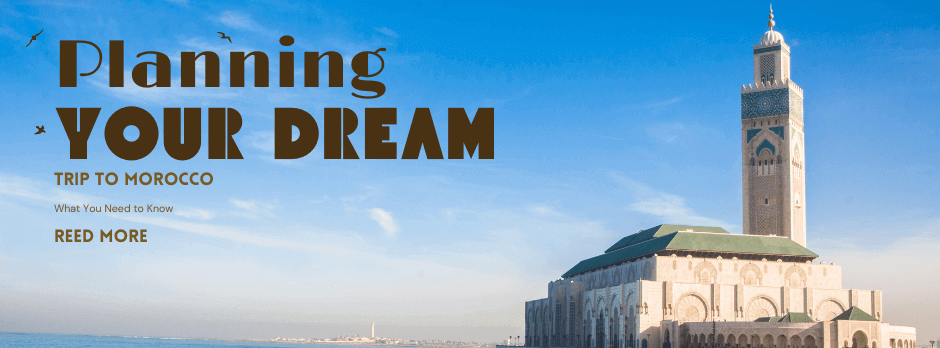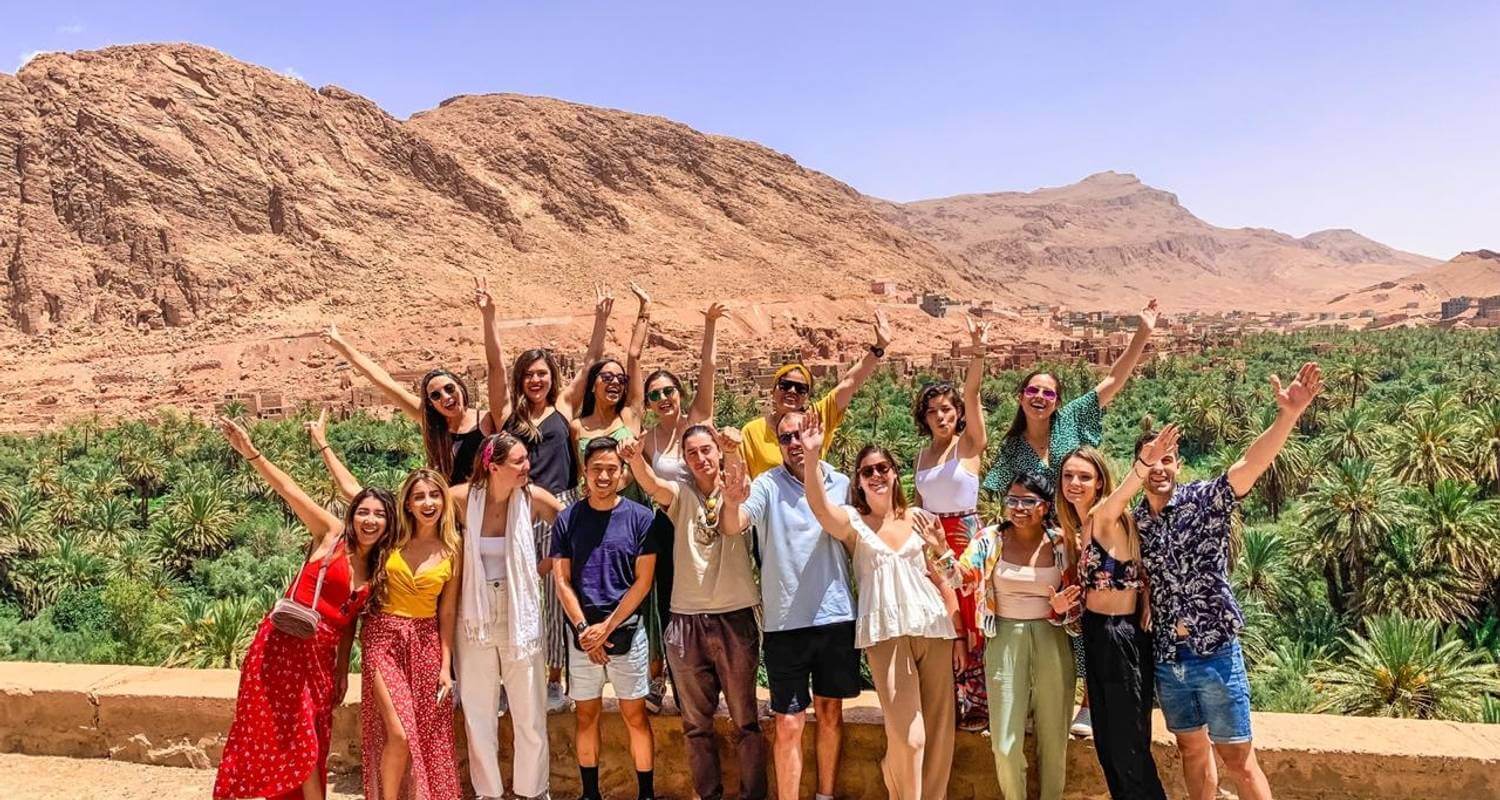Discover Morocco’s Rich History with Guided Tours
Table of Contents
Indeed, the rich history and cultural significance embedded within the cities of Morocco, such as Fes, span over a millennium, offering a tapestry of stories and meanings that may elude the uninitiated traveler. Guided tours serve as indispensable conduits for unlocking this treasure trove of knowledge, revealing layers of insight that might otherwise remain obscured.
While the inherent beauty of Morocco’s sights is undeniable, their allure is magnified exponentially when viewed through the lens of historical and cultural context. Thus, opting for a guided tour facilitated by a licensed guide is not merely a recommendation but a gateway to a deeper appreciation of the country’s heritage.
In a land renowned for its hospitality, it’s unfortunate that a small minority may seek to exploit unsuspecting tourists by masquerading as guides without proper authorization. To safeguard against such deception, it is prudent to exercise caution and discernment when selecting a guide. Ensuring that your guide is licensed serves as a vital safeguard against potential scams and ensures an authentic and enriching experience.
As the Moroccan government intensifies its efforts to combat false guiding practices, tourists can play an active role in protecting themselves by remaining vigilant and attuned to telltale signs of illegitimacy. By adhering to these precautions and availing oneself of licensed guides, visitors can delve into Morocco’s cultural tapestry with confidence, secure in the knowledge that they are exploring its wonders responsibly and authentically.
The Impact of Guided Tours.
Enhancing the tourist experience through guided tours can offer numerous benefits, especially in Morocco’s cities. Here are some advantages and the role of licensed guides in providing authentic experiences:
- Cultural Insights: Licensed guides in Morocco can provide deep cultural insights into the history, traditions, and customs of the cities. They can narrate stories behind historical landmarks, giving tourists a richer understanding of Moroccan culture.
- Language Barrier: Many tourists may not be fluent in Arabic or French, the primary languages spoken in Morocco. Licensed guides who are proficient in multiple languages can bridge this gap, ensuring clear communication and a more immersive experience for visitors.
- Local Knowledge: Guides possess intricate knowledge about the cities, including hidden gems, local eateries, and off-the-beaten-path attractions. This insider information allows tourists to explore beyond the typical tourist spots, discovering authentic aspects of Moroccan life.
- Safety and Security: Navigating unfamiliar cities can be daunting for tourists. Licensed guides not only provide safety tips but also ensure tourists feel secure while exploring Moroccan streets, markets, and neighborhoods.
- Customized Experiences: Guided tours can be tailored to suit the interests and preferences of tourists. Whether visitors are interested in architecture, cuisine, or shopping, licensed guides can customize the itinerary to create a personalized and memorable experience.
- Cultural Exchange: Interacting with a licensed guide offers tourists the opportunity for cultural exchange. Guides can share personal anecdotes, local folklore, and engage in meaningful conversations, fostering a deeper connection between tourists and the Moroccan community.
- Historical Context: Exploring historical sites with a licensed guide provides valuable context that enhances the appreciation of these landmarks. Guides can contextualize the significance of each site within Morocco’s history, allowing tourists to grasp the importance of these cultural treasures.
- Supporting Local Economy: By hiring licensed guides, tourists contribute to the local economy and support the livelihoods of Moroccan individuals and businesses. This sustainable tourism approach helps foster economic development and community empowerment.
Appreciating Moroccan Sights with Context.

Appreciating Moroccan sights with context adds a layer of beauty that is enhanced through understanding. By contextualizing the sights, visitors can delve deeper into the rich history, culture, and significance of each landmark, resulting in a much richer experience. This transformation of perception through knowledge elevates the tourist experience, turning mere observation into a profound journey of discovery.
Consider, for example, the intricate architecture of the Hassan II Mosque in Casablanca. While its grandeur is evident at first glance, understanding the architectural influences, the craftsmanship involved, and the spiritual significance behind its design enriches the viewing experience. Visitors can appreciate not only the physical beauty of the mosque but also the cultural and religious heritage it represents.
Similarly, wandering through the labyrinthine streets of the medina in Marrakech takes on new meaning when guided by someone who can provide historical context. Learning about the bustling souks, the centuries-old traditions of craftsmanship, and the significance of each alleyway transforms the perception of what might initially seem like chaotic surroundings into a vibrant tapestry of culture and commerce.
Even natural wonders like the majestic Atlas Mountains or the breathtaking Sahara Desert become more awe-inspiring when viewed through the lens of understanding. Knowing about the geological forces that shaped these landscapes, the nomadic tribes that call them home, and the ecological importance of preserving them adds layers of appreciation to their beauty.
By providing context, whether through knowledgeable guides, informative signage, or interactive experiences, Morocco can offer visitors more than just stunning sights – it can offer them a deeper connection to the country’s heritage and a newfound appreciation for its natural and cultural treasures. This transformation of perception through knowledge not only enriches the tourist experience but also fosters a greater sense of respect and stewardship towards Morocco’s diverse landscapes and traditions.

here are some steps to ensure a smooth and reliable experience when booking a guide in Morocco:
- Book through a Reputable Travel Agency: Start by selecting a travel agency with a strong reputation for providing quality services. Look for reviews and recommendations from previous travelers to gauge the agency’s reliability. When booking, specifically inquire about the guide’s licensing to ensure they meet professional standards.
- Verify the Guide’s Credentials: Upon meeting the guide, politely ask to see their official badge or license. Licensed guides in Morocco are required to carry identification proving their credentials. This badge serves as assurance that the guide has undergone proper training and is authorized to lead tours.
- Seek Assistance if Lost: If you find yourself lost or disoriented while exploring Moroccan cities, don’t hesitate to ask for directions. Locals are often friendly and willing to assist you in finding your way. However, it’s advisable to approach individuals who appear trustworthy or official, such as shopkeepers or security personnel. While many people will gladly provide assistance without expecting anything in return, offering a small tip as a gesture of gratitude is customary in some cases.
Some cautionary tips to ensure your safety and avoid scams while traveling in Morocco:
- Protect Personal Information: Refrain from divulging personal details, such as your name and hotel information, to strangers, especially those encountered on trains or in public spaces. Some con artists may use this information to orchestrate scams, such as having a friend pose as a helpful acquaintance who knows where you’re staying. Stay friendly but maintain discretion when interacting with strangers.
- Beware of “Special Rates”: Exercise caution when approached by guides offering special rates or discounts on accommodations or services. Some individuals may claim to have insider connections or knowledge of better alternatives, but their intentions could be deceitful. Avoid agreeing to any offers that seem too good to be true and independently research accommodations and services before making decisions.
- Watch for Unwillingness to Walk with You: Licensed guides in Morocco are permitted to accompany tourists within the medinas, the historic city centers. If a guide hesitates to walk with you or suggests meeting at a specific location instead of accompanying you throughout the tour, it could signal that they are not licensed or authorized to guide tourists. This reluctance may indicate an attempt to evade authorities or engage in unauthorized guiding activities.

Unraveling the mysteries of Moroccan culture is an enriching journey that involves delving into its rich customs and traditions, as well as immersing oneself in its vibrant cuisine, music, and art. Guided tours offer an ideal opportunity to embrace cultural immersion and gain a deeper understanding of Morocco’s diverse heritage.
- Moroccan Customs and Traditions: Guided tours provide insights into the intricacies of Moroccan customs and traditions, ranging from the etiquette of greeting elders to the significance of tea ceremonies. Learning about these customs fosters respect and appreciation for the cultural nuances that shape Moroccan society.
- Moroccan Cuisine: One cannot fully understand Moroccan culture without exploring its renowned cuisine. Guided culinary tours offer the chance to sample traditional dishes like tagine, couscous, and pastilla while discovering the diverse influences that have shaped Moroccan gastronomy, including Berber, Arab, and Andalusian cuisines.
- Moroccan Music and Art: Guided tours often include visits to museums, galleries, and live music performances, where travelers can immerse themselves in the rich tapestry of Moroccan music and art. From the hypnotic rhythms of Gnawa music to the intricate geometric designs of Moroccan ceramics, these experiences showcase the creativity and talent that define Moroccan artistic expression.
- Embracing Cultural Immersion: Guided tours facilitate meaningful interactions with locals, artisans, and performers, allowing travelers to engage directly with Moroccan culture. Whether participating in a traditional dance workshop, haggling in a bustling souk, or sharing a meal with a Berber family, these immersive experiences foster connections and deepen appreciation for Moroccan heritage.

Why are guided tours essential in Morocco?
Guided tours in Morocco are essential due to the intricate nature of the country’s culture, history, and geography. Navigating Morocco can be overwhelming for visitors due to its diverse landscapes, languages, and customs. A guided tour provides invaluable insights into Morocco’s rich heritage, allowing visitors to fully appreciate its wonders.
How can I ensure my guide is licensed and reputable in Morocco?
Ensuring your guide is licensed and reputable in Morocco involves conducting thorough research and asking pertinent questions. Prior to booking a tour, inquire about the guide’s credentials and affiliations with recognized tourism organizations. Additionally, request references or read reviews from previous clients to gauge their reputation.
What are some must-visit landmarks in Morocco’s cities?
Morocco boasts a myriad of must-visit landmarks in its cities, each offering a unique glimpse into the country’s history and culture. In Marrakech, the iconic Jardin Majorelle and bustling Djemaa el-Fna square are must-see attractions. In Fes, the ancient Fes el-Bali Medina and Al-Qarawiyyin Mosque are historical treasures not to be missed. Meanwhile, in Casablanca, the Hassan II Mosque stands as a symbol of Morocco’s architectural grandeur.
Jardin Majorelle and Djemaa el-Fna square in Marrakech
Fes el-Bali Medina and Al-Qarawiyyin Mosque in Fes
Hassan II Mosque in Casablanca
How can I avoid cultural misunderstandings during tours?
Avoiding cultural misunderstandings during tours in Morocco requires cultural sensitivity and awareness. Familiarize yourself with Moroccan customs and etiquette, such as dressing modestly and respecting religious traditions. Additionally, communicate openly with your guide and locals, asking questions when unsure to clarify any cultural nuances.
Are guided tours in Morocco suitable for solo travelers?
Yes, guided tours are suitable for solo travelers in Morocco, offering numerous benefits and opportunities for exploration. Solo travelers can join group tours to meet like-minded individuals while enjoying the safety and convenience of a guided experience. Alternatively, private tours provide personalized itineraries tailored to individual preferences, ensuring a fulfilling solo travel experience.
What are the advantages of booking a guided tour in Morocco?
Booking a guided tour in Morocco offers several advantages that enhance the overall travel experience. Firstly, guides possess in-depth knowledge about the destinations, providing insightful commentary and historical context that enriches the visit. Secondly, guided tours often include hassle-free transportation, allowing travelers to focus on enjoying the sights rather than navigating logistics. Additionally, guides can offer insider tips and recommendations for hidden gems that might otherwise be overlooked.

How does Altni Tours operate?
Altni Tours operates by providing private, English-speaking drivers who serve as companions and chauffeurs for travelers throughout their trip in Morocco. While these drivers are not considered guides and are not legally licensed to provide guided tours, they offer a personalized perspective of the country during the journey.
The main role of the English-speaking driver is to accompany travelers, share insights, and provide local knowledge based on their own experiences and familiarity with the region. They offer a unique opportunity for travelers to see Morocco through their eyes, offering personal anecdotes and recommendations along the way.
In addition to the drivers, Altni Tours ensures that travelers receive guided tours in major cities from professional, licensed guides. These step-on guides provide historical and cultural background, enhancing the travelers’ understanding and appreciation of each city they visit.
This approach allows travelers to establish a rapport with one person throughout their entire trip while still benefiting from guided tours in each city. By using licensed guides exclusively, Altni Tours ensures the safety and quality of the experience for their travelers, minimizing the risk of exploitation or misinformation.






